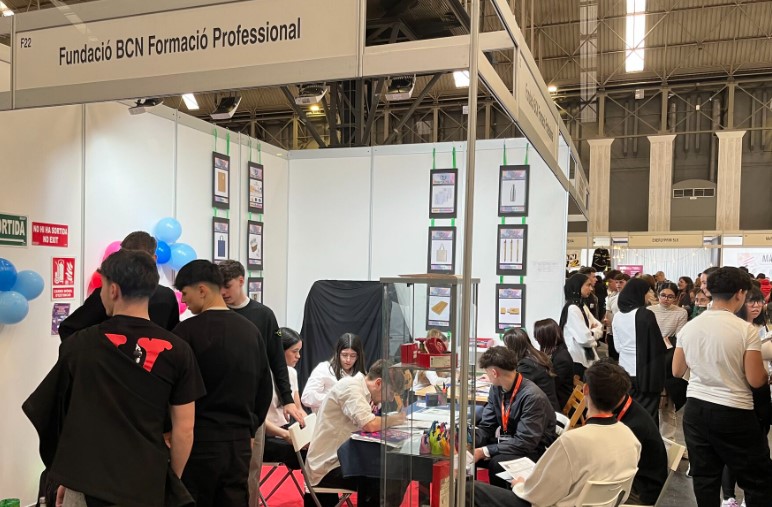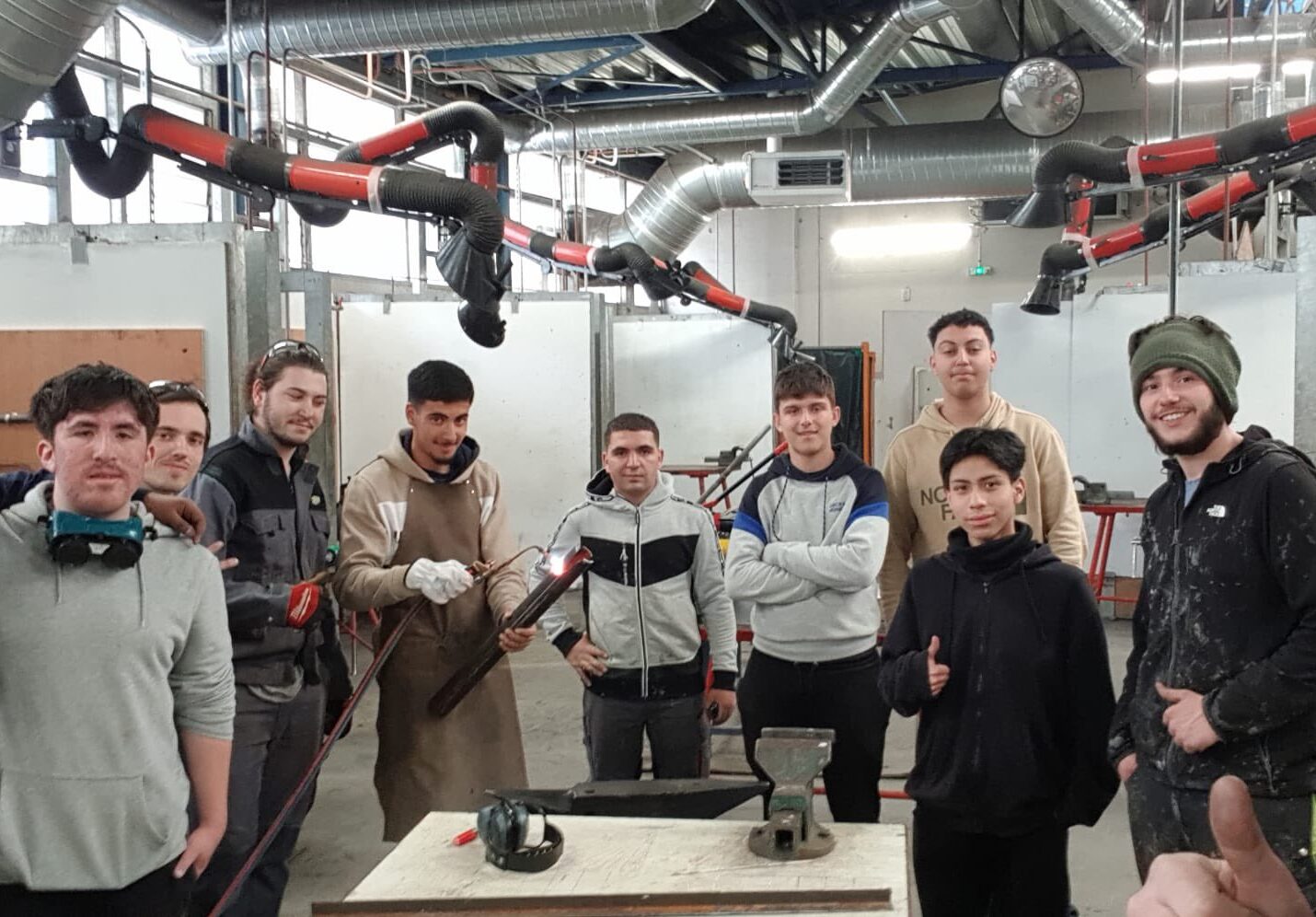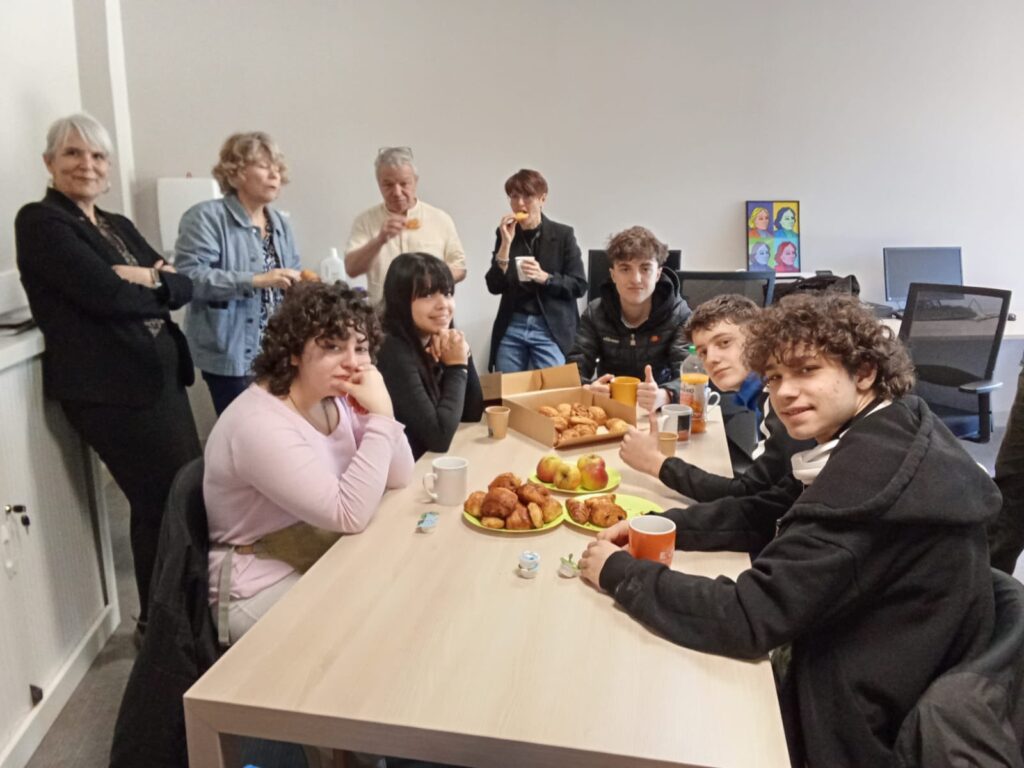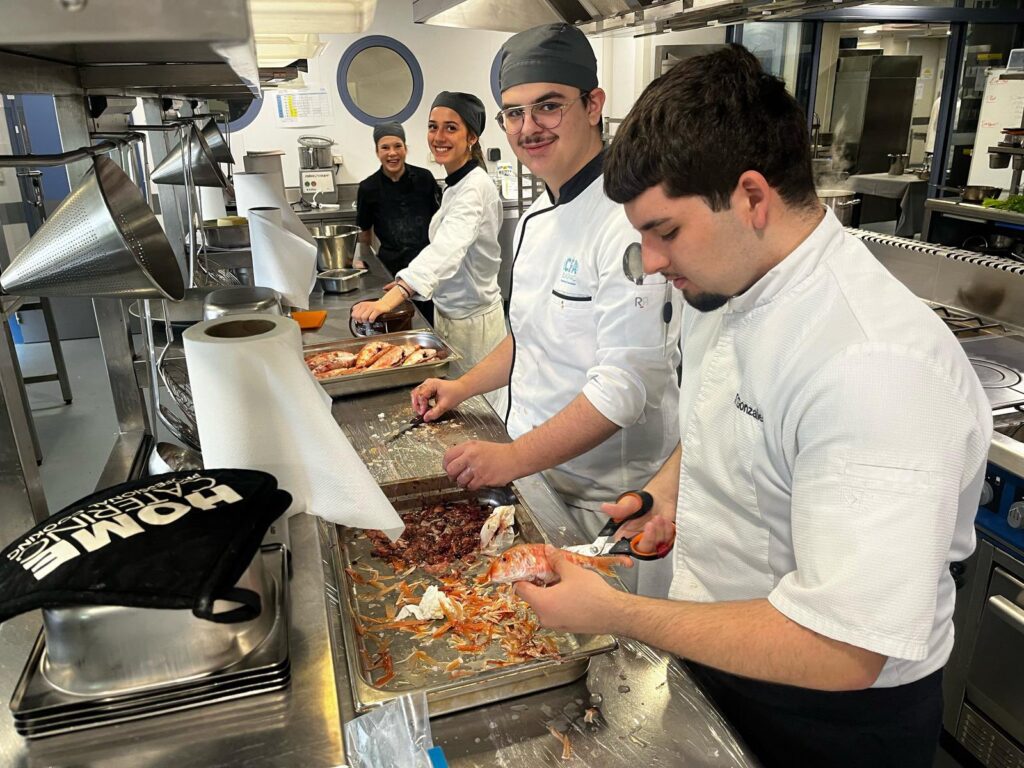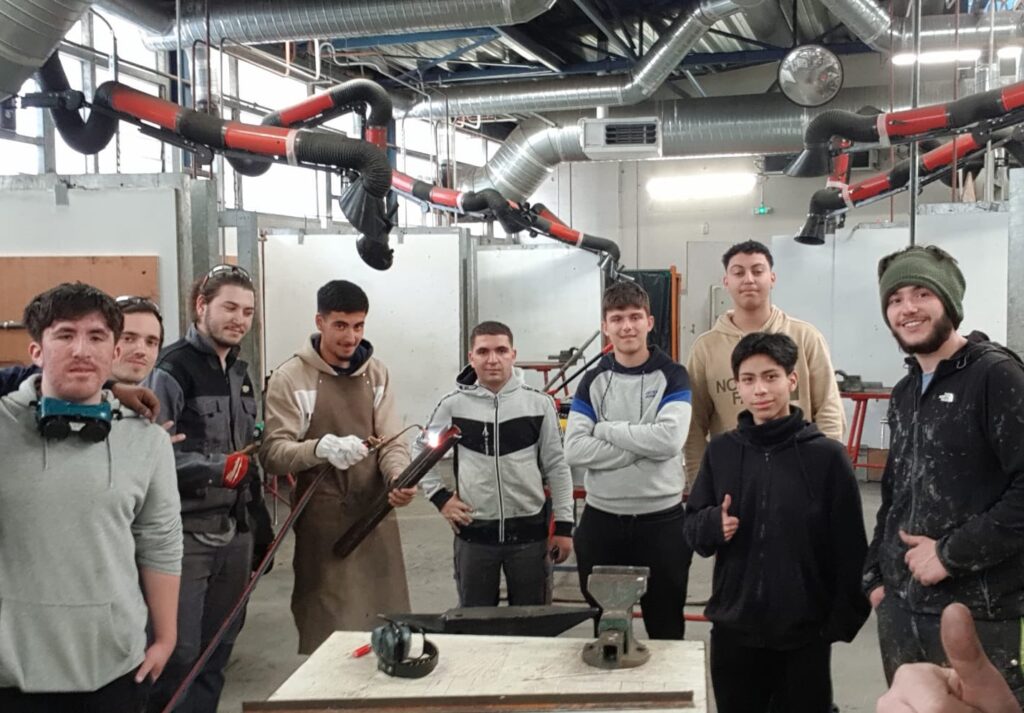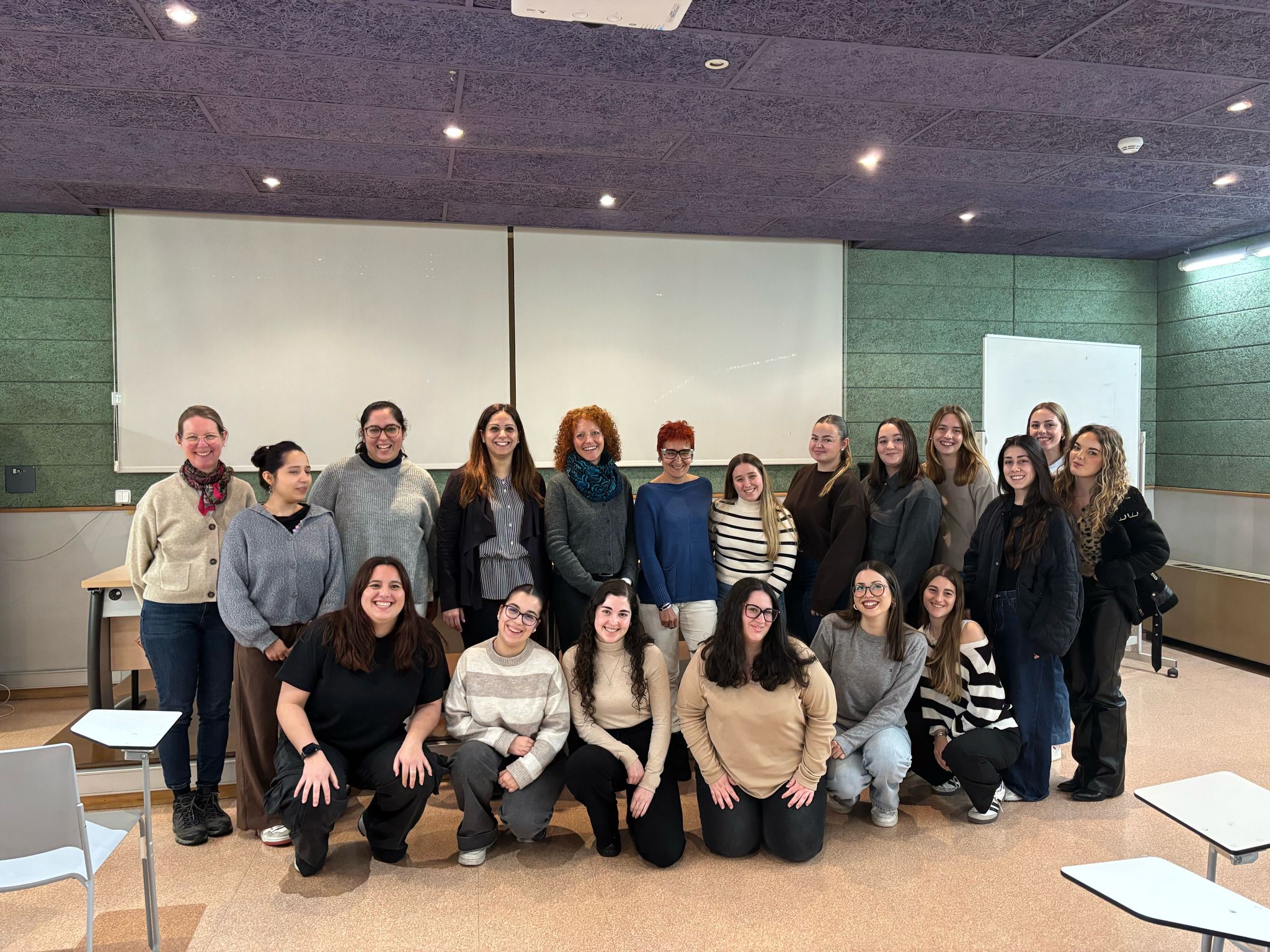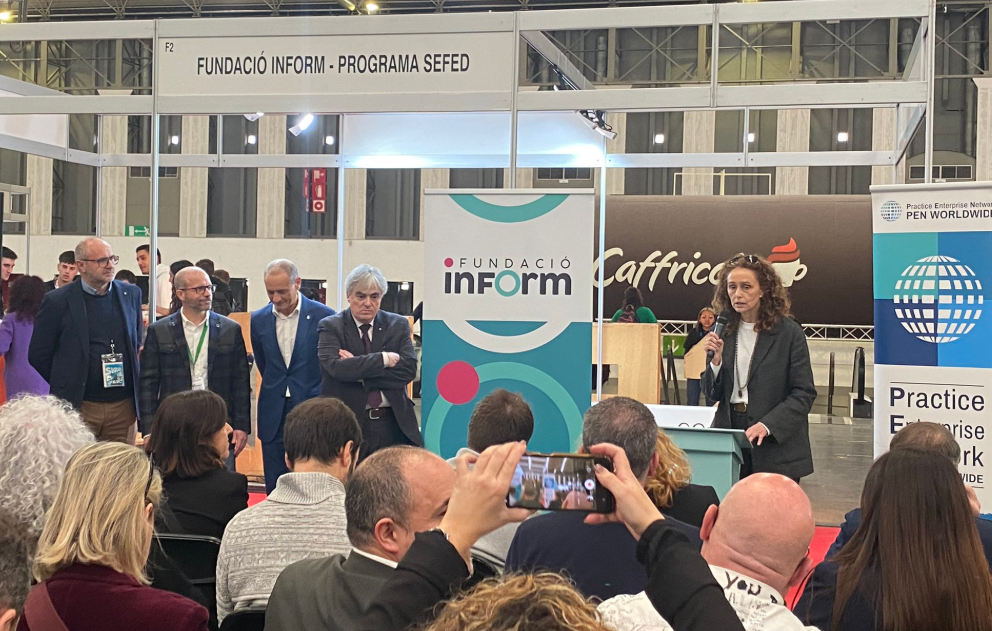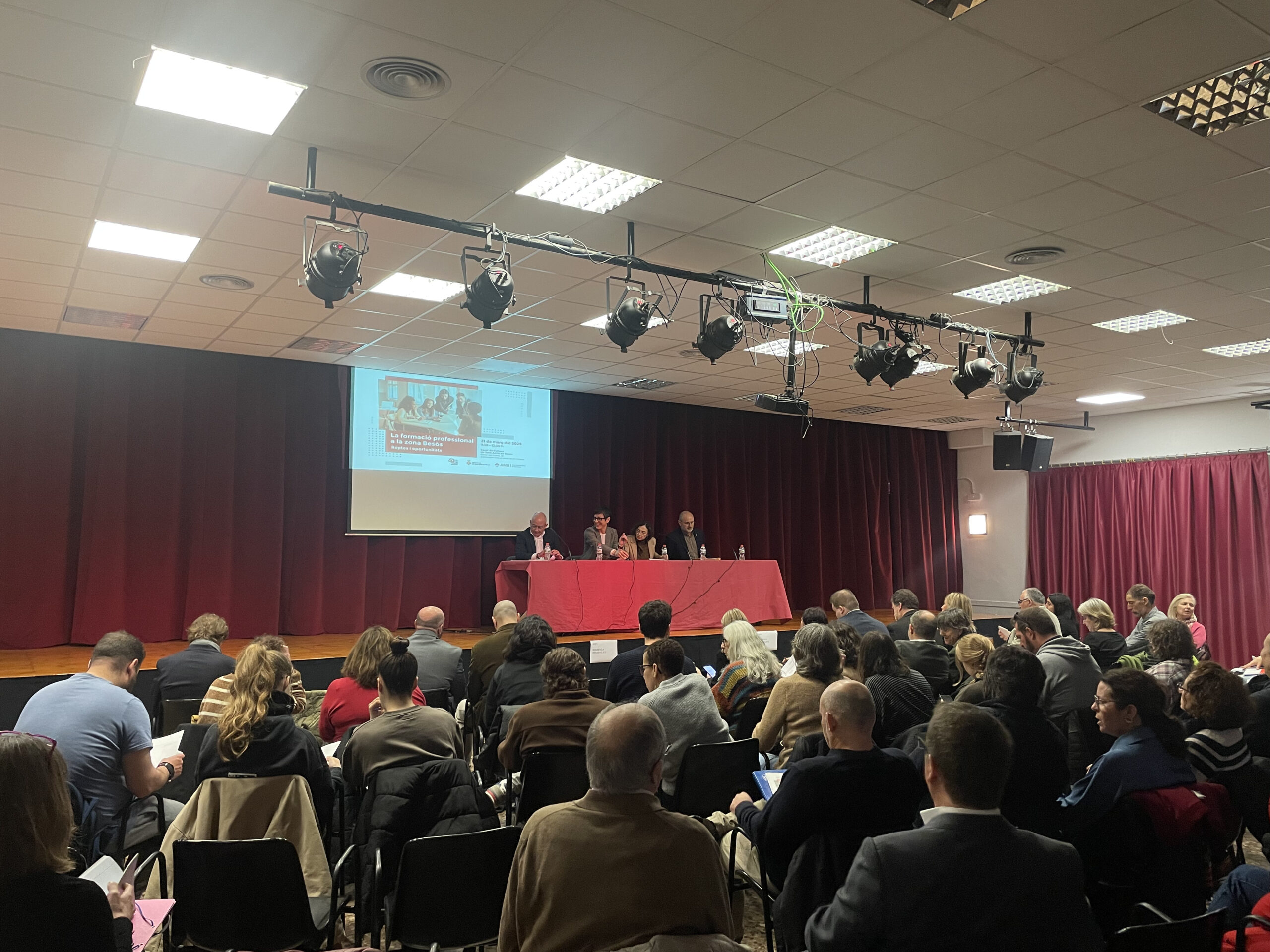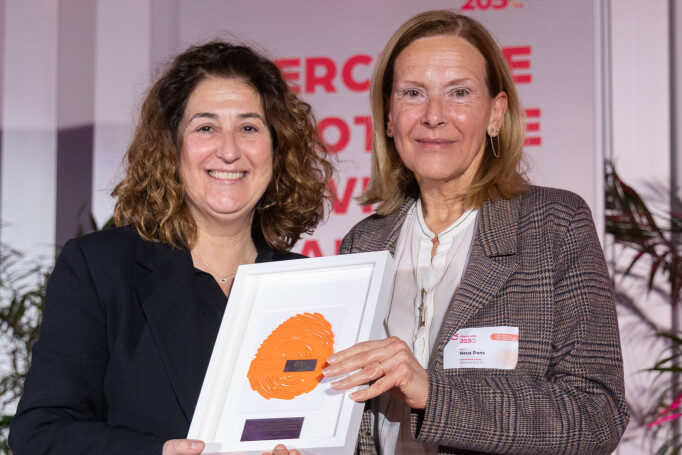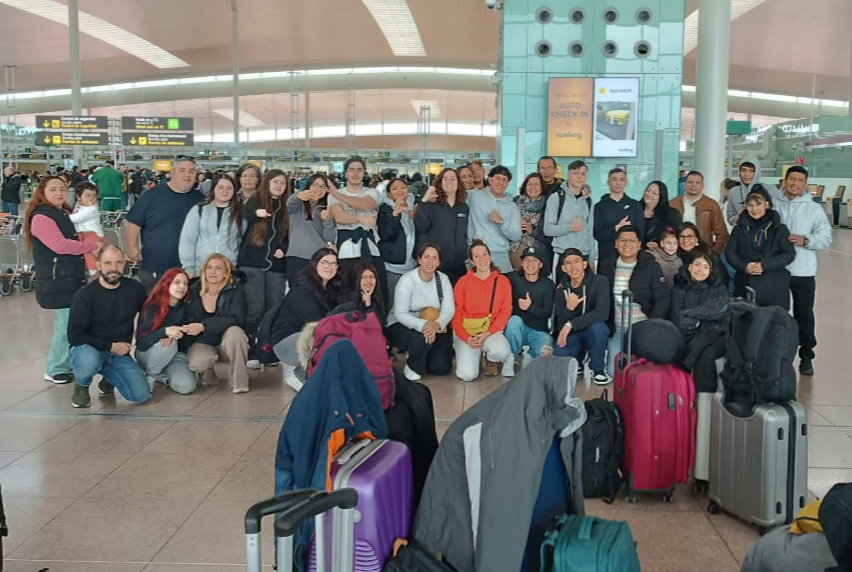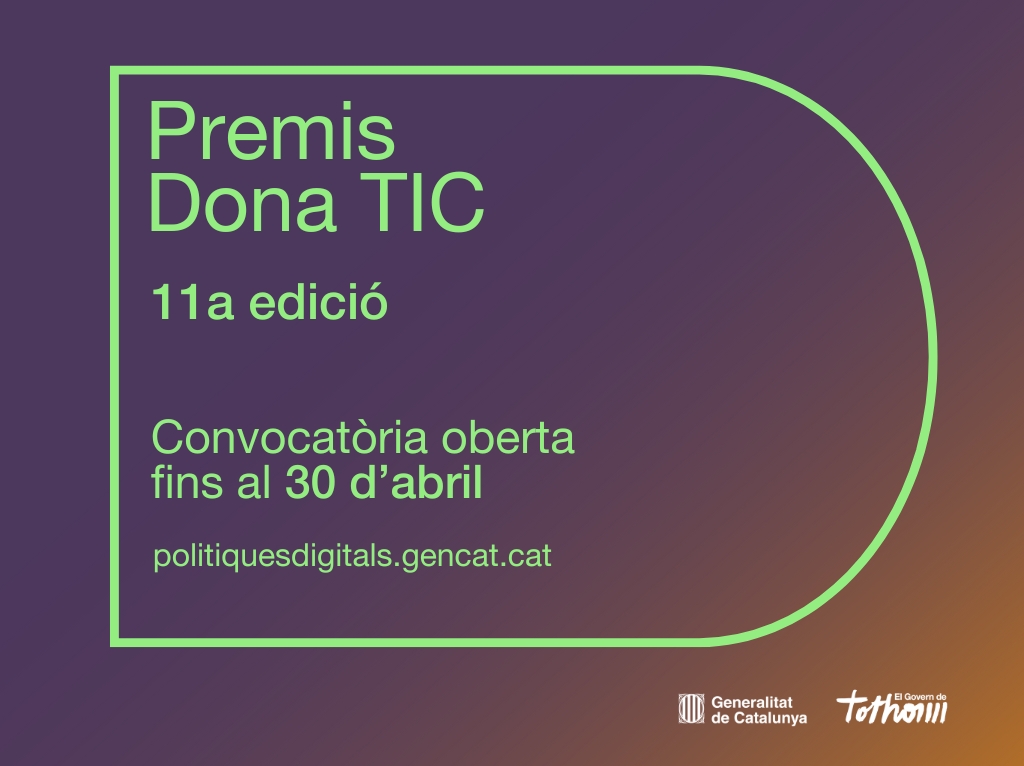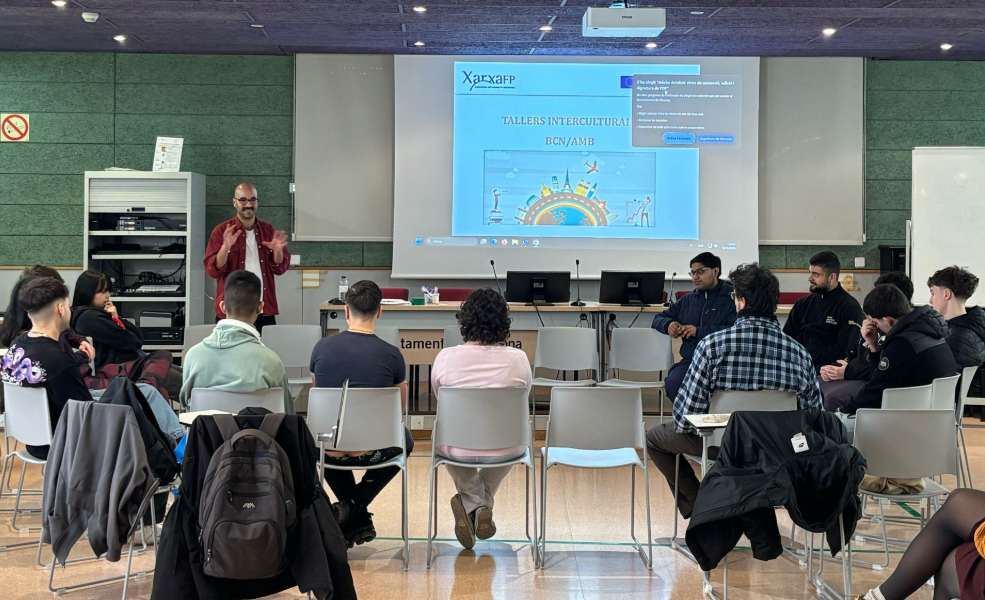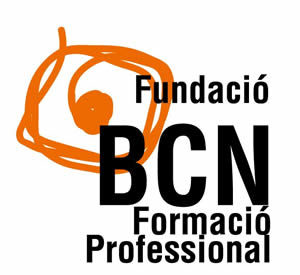At the BCN Vocational Training Foundation, we have been collaborating with this fair for more than 10 years, offering VET centers the opportunity to participate actively.
This initiative allows students to live a practical experience in a realistic environment, following the “Learning by doing” methodology. Through business simulation, students develop key skills that allow them to improve their employability and facilitate their future incorporation into the labour market.
The Foundation’s Simulated Company project and especially the fair are ideal platforms to promote innovation, active learning and prevent early school leaving, helping young people to take the step towards the professional world with the tools they really need and face it successfully.
